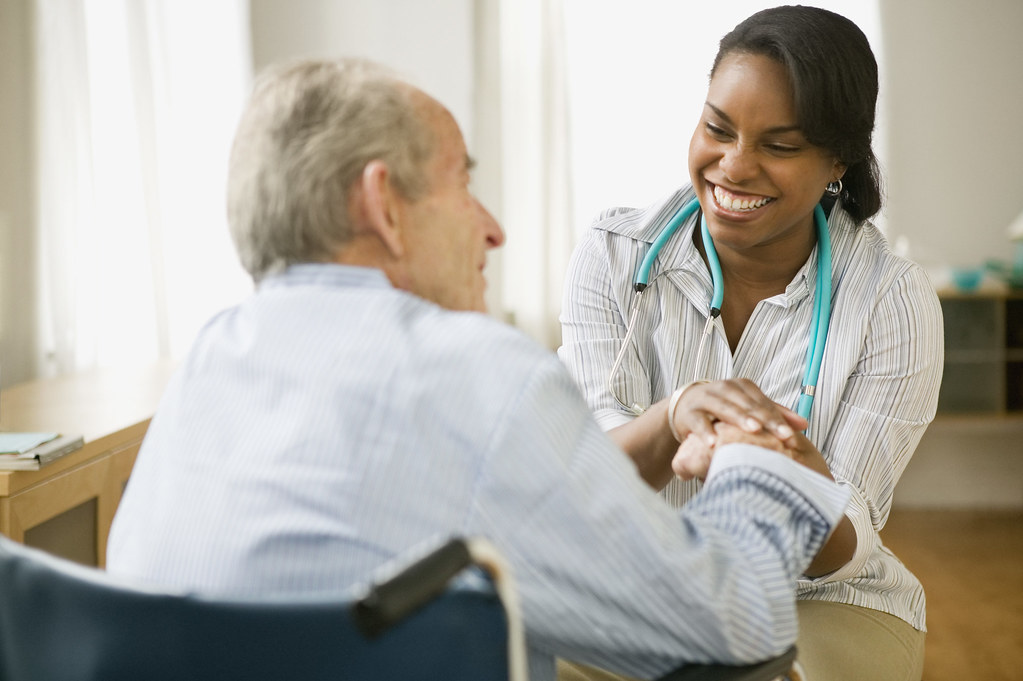
Girl loses court fight against school for ‘requiring’ pupils to wear masks
A 12-year-old girl has lost a High Court fight against her school for “requiring” pupils to wear face coverings, after claiming they risk causing “serious harm” to children’s physical and mental health. The pupil brought legal action against the Tapton Academy School Trust, which runs a number of primary and secondary schools in the Sheffield area, to stop it from “requiring or encouraging” children to wear masks at school to prevent the spread of Covid-19. The schoolgirl, known only as AB and who has been exempted from wearing a mask at school, said mask-wearing could lead to “long-term” harm. At a remote hearing last month, AB’s lawyers asked the High Court to grant an interim injunction preventing her school and the trust from making children wear masks. However, the trust argued that its policy “is to encourage, not to enforce” the wearing of masks, in line with Government guidance, in order to protect children, staff and visitors. The court previously heard that 120 members of staff across the trust’s various schools, representing more than 10% of its total staff, had contracted coronavirus since the end of August 2020. In a judgment on Wednesday, Judge Roger ter Haar QC rejected the request for an injunction, as the pupil is not required to wear a mask and the injunction was not necessary to protect her health and safety. He said: “The case as presently put forward by the claimant suffers from a fundamental defect: the school does not require the claimant to wear a mask – she has been treated as being exempt from that requirement.” The judge said he made “no conclusions whatsoever as to the safety or otherwise of requiring children to wear face masks at school”. AB’s lawyers had provided a report from a chartered health and safety practitioner about problems children may face wearing masks, as well as a report from a clinical psychologist about psychological risks of a mask-wearing policy. Judge ter Haar continued: “Put shortly, the underlying premise of the claim is that the physical and psychological risks presented to children by the requirement to wear face masks is not justified by medical or epidemiological evidence. “That is a belief strongly held by many people, including the claimant’s father, as illustrated by the fact that, as I was told, this action has been crowdfunded.” He added that the witnesses’ views “do not represent universal scientific and medical views as to the scientific and medical merits, disadvantages and dangers of the wearing of masks in schools”. By Jess Glass, PA

Dangerous driving at funeral leads to police appeal
(Credit: Kevin.B) A funeral procession led to multiple reports of anti-social behaviour after a group of drivers in sports cars hired for the funeral blocked roads and drove recklessly. The procession was travelling from Bolsover to Shiregreen Cemetery in Sheffield between 10am and 1pm on the 28th April. Drivers were hanging out of their windows, driving over roundabouts, along pavements and charging into oncoming traffic according to reports. Sergeant Matt Duffy said the funeral was dedicated to two young people who lost their lives in an accident and this dangerous behaviour posed a risk to everyone involved. He said: "The manner of driving demonstrated by a handful of those attending meant that they not only posed a risk to themselves, but to other members of the procession and members of the public en route. Our call handlers received a number of calls from people reporting instances of dangerous driving and concerns for the welfare of other road users." If you have any information contact the police through 101 quoting the incident number 100 of 28 April. Any dashcam footage can be sent to enquiries@southyorks.pnn.police.uk.

Sheffield science team wins prestigious award for care thanks to new support method
(Credit: a.drian) The neurology team at Sheffield Teaching Hospitals were awarded the 2021 QI Innovation Award from the American Academy of Neurology for their ‘Pick, Tick and Click’ method used in treating Motor Neurone Disease (MND). This method aims to streamline the process of managing patient’s needs and improve the quality of care and support they receive, according to the hospital. The team was lead by Specialist Registrar and Clinical Teacher at the University of Sheffield, Dr Mahjabin Islam and was supervised by Dr Thomas Jenkins and Professor McDermott. Other members involved in the project were Specialist Registrar, Dr Ahmed Mubarak Mohamed, MND Nurse Theresa Walsh and Clinical Admin Co-ordinator Annette Taylor. Dr Islam said: “I feel incredibly honoured to receive the 2021 QI Innovation award in recognition of our work to provide accessible, compassionate care for patients living with Motor Neurone Disease. “We tailor our service based on national guidelines, evidence, and patient feedback and aim to continuously improve the quality of care for our patients.” Dr Islam and her team will be able to present their work in America once pandemic restrictions have been eased. Motor Neurone Disease is an incurable neurological condition that affects the brain and nerves and worsens over time. This can lead to issues with breathing, feeding, nutrition, mobility and mental health. Sheffield Teaching Hospitals has assigned specialists to help patients suffering with MND. They say this provides easy to access information and support for patients and has seen an improvement in managing their condition. MND can significantly shorten the lives of those affected and eventually leads to death. It is a rare condition which mainly affects those in their 60s and 70s, but can affect people of any age. The Patient Services Awards were created by the American Academy of Neurology to recognise those dedicated to improving the lives of patients through advocacy, quality improvement, or service.

Yorkshire and Humberside UNISON “not convinced” pay rise promise will reach carers
Urgent funds aimed at tackling the health and social care crisis may be swallowed up by care providers and not passed onto workers, Yorkshire and Humberside UNISON have said. The £4.2m fund to give Sheffield's carers a pay rise was unveiled by Sheffield City Council earlier this year and is a key pledge for the party ahead of this Thursday's local elections. Robin Symonds, social care lead at the Labour-affiliated union, said over 200 private companies contracted by the council to administer adult social care are likely to use the money to maintain or increase profit levels. He said: “Our main concern is that the council are putting in £4.2m, which is not to be sniffed at, particularly as councillors are having their budgets cut, but we’re not convinced it’s going to find its way into the pay packets of care workers. “Care workers are working people too, who pay council tax. They’re not just beneficiaries, they’re paying, so if the additional council tax is going into care company profits, the workers are then paying to increase their employer’s profits as well.” The fund also aims to help increase staff retention in the sector, in response to reported staff turnovers as high as 50 per cent by some care providers. Fewer staff means adult social care is less readily available, worsening the crisis. Sheffield City Council signed up to the UNISON's Ethical Care Charter in 2017, which requires all care providers operating on behalf of the council to pay the foundation living wage. Four years later, most carers in the city are still on minimum wage. The union are calling for the council to make paying carers the foundation living wage a contractual obligation. Nationally, they are calling for the introduction of a publicly-funded National Care Service, free at the point of use similar to the NHS. In their manifesto for the local elections, Sheffield Labour have promised to only award new contracts to companies who agree with their ethical standards: "by paying their taxes, respecting workers’ rights and equal opportunities, and investing in the talents of their employees through good training and healthy, safe working conditions." Meanwhile, adult social care precept has risen in Sheffield by 3 per cent this year, the maximum allowed by central government limits, alongside a council tax rise of 1.99 per cent. There is growing concern among the city's residents a rise in so-called regressive taxes puts a significant financial burden on those least able to afford it. One resident, who lives in a Band B property, said: “It’s been tough on everyone so it’s difficult to decide who should pay. Something is going to have to give but it’s already so expensive." At the budget meeting where the fund was announced, Sheffield Lib Dem leader Shaffaq Mohammed said: “There’s considerable demand for adult social care both at a local level and nationally, therefore actually here it should be funded from government. “Councils across the country, like ours, are left with little choice but to raise council tax and often that hits the most vulnerable.”

Sheffield residents react to projected labour losses in ‘Red Wall’ seats
With Labour set to suffer further losses to its ‘Red Wall’ seats during Thursday’s local council elections, we asked the people of Sheffield where their party-loyalties lie in light of Labour's waning popularity.
Sheffield Council has traditionally been a stronghold for the Labour party, but a recent YouGov poll projects Sheffield Council to shift from Labour control to ‘leaning Labour’.
Unlike many councils in the so-called 'Red Wall', the Conservatives are not expected to make significant gains in Sheffield.
Instead, it is seeming increasingly likely Labour will lose seats to the Liberal Democrats and Green Party.
Labour's dwindling support has been pinned, in part, to growing national scorn for party leader, Keir Starmer, who, according to recent polling from YouGov, has seen his approval rating fall from 48 per cent in June 2020, to 26 per cent this month.Speaking to residents outside Sheffield Town Hall, opinion was split on the Labour leader.
Sheila Barber, a retired legal professional said: “I like him [Starmer] because I like reasonable people. I think he’s reasonable and measured and he was a lawyer. I worked in the criminal justice system for 25 years so I’ve got a lot of respect for him.”
Jack White, 24, who works for an energy company, said he plans to vote for the Green Party in tomorrow’s council elections, stating that he believes Labour were not doing enough to tackle climate change.
Speaking on what the council has achieved since declaring a climate emergency in February 2019, he said: “They’ve not done enough at all. I think they just did that as a peacekeeper.”
On Starmer, he said: “I think a lot of young people are angry with the Labour Party at the moment because Keir Starmer just hasn’t got the same passion that Jeremy Corbyn had.
“His views are too sensible. We’re living in a generation where people are a lot more passionate and more read-up on politics - particularly younger people.
“We want a Labour government that will give young people’s views and we’re not being given that at all at the moment.”
While council elections are usually dominated by local issues, they are looked to by political parties as a barometer of how the party is doing nationally.
According to the latest YouGov data, Johnson has a favourability of -2 in ‘Red Wall’ seats, with Starmer polling at -11.
Irene Frith, 76, said she is planning on voting Conservative in tomorrow’s council elections regardless of whether they have a realistic chance of winning council seats.
“This is going back a long time to the ‘60s when I first got married. Harold Wilson was Prime Minister and he ruined our lives with his policies and I have been Conservative ever since.”
On Keir Starmer Ms Frith added: “I don’t think he’s a socialist by any means. He’s a wealthy conservative I think.”
In line with our report last week, the prevailing mood among residents is one of apathy towards council elections.
A significant majority of people we spoke to declined to comment once local elections were mentioned with one woman saying: “I can’t say the things I’d like to say on camera”.
Goalless draw at Luton leaves Rotherham’s survival hopes in the balance
Credit: Tom Sodoge The Millers were held at Kenilworth Road meaning that their fate is in the hands of Derby County and local rivals Sheffield Wednesday, going into the final day. At kick-off, Rotherham sat three points adrift of Wayne Rooney's Derby but enjoyed a superior goal-difference, which meant a win could have lifted them out of the relegation zone. The visitors survived a real scare mid-way through the first-half when poor defending allowed Elijah Adebayo space in the box to get a shot away and rattle the crossbar before before Kiernan Dewsbury-Hall's in-swinging corner was pushed onto the post by Jamal Blackman. Paul Warne's side also went close in the first-half when Matt Crooks' lob bounced onto the post before being collected by a relieved Simon Sluga. In a less frenetic second-half, it was Rotherham who went closest to breaking the deadlock when Ryan Giles' superb cross was headed just wide of the post by Crooks. With full-time beckoning, Blackman was called upon to push away Sonny Bradley's well struck free-kick but neither goalkeeper would be beaten at Kenilworth Road. Rotherham boss Paul Warne told BBC Radio Sheffield: "If we manage to win [on Saturday] then we give ourselves a chance - there's all these connotations but we just have to go and win." The draw leaves Paul Warne's side without a win in six and two points from safety going into the final day.

DMA’s Matt Mason talks about the band’s first post-Covid gig
Lead guitarist of DMA’s, Matt Mason, said the band is looking forward to playing for some of the “most passionate” fans in the world at Tramlines this year . The band will be performing for the first time since the pandemic, headlining alongside The Streets, The Kooks and Pale Waves on the first day of the festival weekend, 23 July. Mason said: “UK fans are the most passionate music fans compared to anywhere else in the world. The crowds are crazy, it doesn’t matter if it’s raining or not, they get there as soon as the doors open. “They stay for the supporting bands as well, which really says something about how much they like music.” The Australian Rock band said they are looking forward to finally playing their album “The Glow” post-lockdown in Sheffield, as they did not get the chance to play much of it after its initial release. Over the lockdown, the band has had the opportunity to collaborate with several artists from other genres, such as rap and punk, with whom Mason says they would not normally have been in touch. “This is stuff I wouldn’t normally have time to do, so you’re going to see songs written from different artists in different parts of the world who have made music together. “Unfortunately, you won’t see much of these collabs at Tramlines because at festivals you want to play songs you know the fans know and love.” When asked about his favourite place in Sheffield, Mason named Malaysian restaurant on Trippet Lane, Noodle Doodle. “In our group chat when we find out we’re playing in Sheffield, it’s immediately like ‘Noodle Doodle, let’s do it’. In Australia, we’re really close to a lot of Asian countries, so the Asian food there is really good, and we find it difficult to find authentic stuff in the UK”, he told SheffieldWire. Tramlines tickets have now sold out, but Mason assures fans that DMA’s plan to make the most of their trip to the UK and will most likely perform at other venues.

Police appeal following suspected arson attack
(Credit: harry_nl) An appeal for information has been released by South Yorkshire Police after a suspected arson attack at Maltby Miner's Welfare. The fire occurred on 28th April at 6pm and when police arrived on the scene, stones and bottles were thrown at the officers and members of the fire crews by youths. The police are looking for information as to the identities of those involved. If you have any information, contact the police at 101 using incident number 703 of 28th April. Alternatively, footage can be emailed to enquiries@southyorks.pnn.police.uk or you can contact the Rotherham team through RotherhamSouthNPT@southyorks.pnn.police.uk.

Sheffield Wednesday ranked third worst league club in England for fan engagement
Sheffield Wednesday have been ranked 89 out of 91 for the worst clubs at engaging with their fans in a recent survey.
Think Fan Engagement, a company founded 20 years ago by Kevin Rye, collated the results for the 2019/20 campaign.
Measuring every team who participated in the English Football League last season, the overall engagement was scored from three different metrics.
These were the dialogue, governance and transparency.
The results could not come at a more tenuous time with their game against Derby County this weekend being a relegation decider, where Wednesday must win at Pride Park to have any hopes of remaining in the Championship.
Finishing bottom in the survey out of all of the Championship clubs from the 2019/20 season, the Owls finished sixteenth in the table but suffered a twelve point deduction for breaching the rules surrounding the sale of their stadium, Hillsbrough, last year.
Following an independent review last November, the points were halved to six, yet this has still been costly being just three points adrift from safety with only a game remaining.
The results have provided an unsurprisingly negative response from supporters towards the ownership:


 The results for next year are hardly looking promising, as in light of the pandemic some fans have still been waiting on a refund for their season ticket which they bought last August.
Despite all the home games at Hillsbrough completed, many fans have still not received a refund.
With relegation to League One looming, the uncertainty surrounding their ownership continues to linger causing mistrust within the fanbase.
Owned by Thai Businessman, Dejphon Chansiri, acquired 100% of the club in 2015 with the aim of achieving Premier League football two years later. Despite reaching the Championship play-off final in 2017, they have rarely looked like genuine promotion contenders since then.
The results for next year are hardly looking promising, as in light of the pandemic some fans have still been waiting on a refund for their season ticket which they bought last August.
Despite all the home games at Hillsbrough completed, many fans have still not received a refund.
With relegation to League One looming, the uncertainty surrounding their ownership continues to linger causing mistrust within the fanbase.
Owned by Thai Businessman, Dejphon Chansiri, acquired 100% of the club in 2015 with the aim of achieving Premier League football two years later. Despite reaching the Championship play-off final in 2017, they have rarely looked like genuine promotion contenders since then.

SYP Mounted Unit starts national horse relay for charity
A new charity initiative was launched by South Yorkshire Police's mounted unit in Rotherham yesterday to repay the 'monumental' debt of gratitude owed to the nations horses. The first ever Great for Health charity relay had its first baton pass at Wentworth Woodhouse. The six riders and six horses received the baton from Wentworth Woodhouse’s CEO, Sarah McLeod, and Justin Brooks, the Great for Health relay coordinator for South Yorkshire. Sophie Gifford, founder of Horses for Health, said: "Horses for Health and the charities are enormously grateful for the involvement of not just the South Yorkshire Mounted Unit, but also West Yorkshire, who are taking over the 'baton' from their South Yorkshire colleagues tomorrow at their yard in Wakefield."

Credit: South Yorkshire Police

Map of Horse Relay route Credit: horses for health

‘You feel a weight lifted’: The Sheffield boxing gym with mental health at its heart
Image Credit: @hashtagmentalmate
'The Mental Health Emergency' was how the charity Mind titled its report into how the Pandemic had affected the nation's mental health, in the months following the first lockdown.
The charity included the alarming statistic that two-thirds of those struggling with mental-health problems, prior to March 2020, had seen their condition worsen as a result of the initial lockdown and as we emerge from a third, many are anxious at the prospect of restrictions being eased.
It is, therefore, more crucial than ever to ensure that there are provisions in place to help support people with their mental health as normality returns and the Mental Mate Boxing club is playing an important role in providing just that
Based at the Knox Gym in the Wicker area of Sheffield, Mental Mate is a boxing club run by Daniel Barton that promotes more than just physical health. Since January 2020, Daniel has been intent on helping people across the city aid their mental wellbeing through boxing-based exercise classes on Sunday mornings and Wednesday evenings but his initial inspiration behind launching the club stemmed from his own battle with mental health.
"I had my own mental health issues and I used boxing as a bit of a tool to keep it at bay.
"It was then just a thought, it helps me so would it help anyone else too?"
For Daniel, boxing was an important outlet and it was simply the physical toll of the sport that provided the biggest help.
"It's just that physical release, you feel a weight lifted from just punching the bag and you're physically and mentally tiring yourself out from doing the exercise.
"But its kind of just the relief you feel and the satisfaction of punching something for twelve rounds or so."
However, COVID put paid to the prospect of hosting classes in person and for someone who thrives on being active, Daniel found the insular nature of lockdown difficult.
"For me, it was not being able to go out and get to the gym, that's what got to me."
"I need to get out and do something because otherwise your mental health drains away, you just feel worse and worse the longer your stuck in the house not being active."
In order to boost the mental state of both himself and those who attended the classes, Daniel took up running and ran one-to-one sessions which proved to be a real help.
But with cases falling and restrictions easing, he is now able to get back to hosting group sessions at the Knox.
In line with the club's ethos of promoting physical and mental health in tandem, Mental Mate offers a range of sessions that help with both aspects of wellbeing.
Daniel takes care of the physical aspects and puts attendees through their paces with bag sessions and pad work, as well as core exercises that include squats to aid overall fitness.
Since January 2020, Daniel has been intent on helping people across the city aid their mental wellbeing through boxing-based exercise classes on Sunday mornings and Wednesday evenings but his initial inspiration behind launching the club stemmed from his own battle with mental health.
"I had my own mental health issues and I used boxing as a bit of a tool to keep it at bay.
"It was then just a thought, it helps me so would it help anyone else too?"
For Daniel, boxing was an important outlet and it was simply the physical toll of the sport that provided the biggest help.
"It's just that physical release, you feel a weight lifted from just punching the bag and you're physically and mentally tiring yourself out from doing the exercise.
"But its kind of just the relief you feel and the satisfaction of punching something for twelve rounds or so."
However, COVID put paid to the prospect of hosting classes in person and for someone who thrives on being active, Daniel found the insular nature of lockdown difficult.
"For me, it was not being able to go out and get to the gym, that's what got to me."
"I need to get out and do something because otherwise your mental health drains away, you just feel worse and worse the longer your stuck in the house not being active."
In order to boost the mental state of both himself and those who attended the classes, Daniel took up running and ran one-to-one sessions which proved to be a real help.
But with cases falling and restrictions easing, he is now able to get back to hosting group sessions at the Knox.
In line with the club's ethos of promoting physical and mental health in tandem, Mental Mate offers a range of sessions that help with both aspects of wellbeing.
Daniel takes care of the physical aspects and puts attendees through their paces with bag sessions and pad work, as well as core exercises that include squats to aid overall fitness.
 When it comes to aiding mental health, on Sunday mornings a member of the Sheffield Mind team comes down to the gym to run sessions alongside the physical training, that provide a platform for attendees to talk through how their weeks have been any struggles they may have.
"There's a sense of family down there.
"There's a non-judgment aspect and people feel more comfortable about opening up because they know that everyone else is sharing similar issues."
Daniel has recently had a number of people volunteer to help with mental health counselling and he is always happy to take on anyone who is willing to simply "listen and have a conversation with somebody".
Such has been the popularity of the classes that there is now a waiting list to join the club which has meant that Daniel has expansion on his mind and he is excitedly considering putting on more sessions.
Fundamental to the success of Mental Mate is the fact that there is evidence of real progress, both tangible and intangible, among those who enjoy the haven of the club every week.
"Its obviously really rewarding to, mainly, see them mentally improve but also physically because 99 per cent of them haven't touched a pair of boxing gloves in their life.
"So seeing them progress in that regard is just as rewarding."
Mental Mate's mission to boost mental and physical wellbeing is a goal that is being achieved continuously thanks to Daniel's enthusiasm and evident desire to help others.
"People sometimes just need a chat, and it can be as simple as that.
"Other times people need far more than that, but we've found people just having a chat and a punch tends to make a big difference to them."
When it comes to aiding mental health, on Sunday mornings a member of the Sheffield Mind team comes down to the gym to run sessions alongside the physical training, that provide a platform for attendees to talk through how their weeks have been any struggles they may have.
"There's a sense of family down there.
"There's a non-judgment aspect and people feel more comfortable about opening up because they know that everyone else is sharing similar issues."
Daniel has recently had a number of people volunteer to help with mental health counselling and he is always happy to take on anyone who is willing to simply "listen and have a conversation with somebody".
Such has been the popularity of the classes that there is now a waiting list to join the club which has meant that Daniel has expansion on his mind and he is excitedly considering putting on more sessions.
Fundamental to the success of Mental Mate is the fact that there is evidence of real progress, both tangible and intangible, among those who enjoy the haven of the club every week.
"Its obviously really rewarding to, mainly, see them mentally improve but also physically because 99 per cent of them haven't touched a pair of boxing gloves in their life.
"So seeing them progress in that regard is just as rewarding."
Mental Mate's mission to boost mental and physical wellbeing is a goal that is being achieved continuously thanks to Daniel's enthusiasm and evident desire to help others.
"People sometimes just need a chat, and it can be as simple as that.
"Other times people need far more than that, but we've found people just having a chat and a punch tends to make a big difference to them."

“They’re still alive” states ex-Sheffield Wednesday defender ahead of this weekend’s relegation decider
(Photo credit: Sheffield Star). Former Sheffield Wednesday centre back, Miguel Llera, believes the club must come together on Saturday to fight for their Championship future. The 41-year-old was part of the Owls side who won promotion from Sky Bet League One in 2012, which was the last time they featured in third tier of English football. With Wednesday’s fate hanging in the balance, Llera believes it is imperative that they give it their all in the final game of the season against Derby at Pride Park. He said: “They need to be in the Championship. This club is important for the city, it’s all about the fans, which is something I’ve known since my first game. It would’ve been difficult without them in the stadium because they are like a 12th player. “The most important thing is, they’re still alive. The fans, the club and the players have to be together until the 95th minute to try and stay up. Whatever happens on Saturday, the club needs to be working towards next season.”
Llera states he really enjoyed his relationship with the fans during his time at Hillsborough from 2011-14. “The connection was great, my personality and character fit really well to what the fans are looking for. My passion and performances were something that’s expected from a Sheffield Wednesday player, because you need to make the club part of your life.” If the club are relegated on Saturday, Llera believes only the players who are committed to getting the club back to the Championship should remain. “They will need to figure out which players want to be at the club and play in League One, so they can bounce back like Hull. They would need to bring in people who will have a link with the fans and create a good environment. “Having passion will bring happiness, if they don’t want to play then let them go. When fighting for promotion, everyone has to be on the same page with the same dream.” Llera admits getting promoted in 2012 is one of the highlights of his career and hopes for a positive result on Saturday. “It’s an amazing memory. Having 35,000 fans there was a moment of my career I’ll never forget. Hopefully the fans will be celebrating staying up this weekend."🔜 All eyes on the season finale...#swfc
— Sheffield Wednesday (@swfc) May 5, 2021
